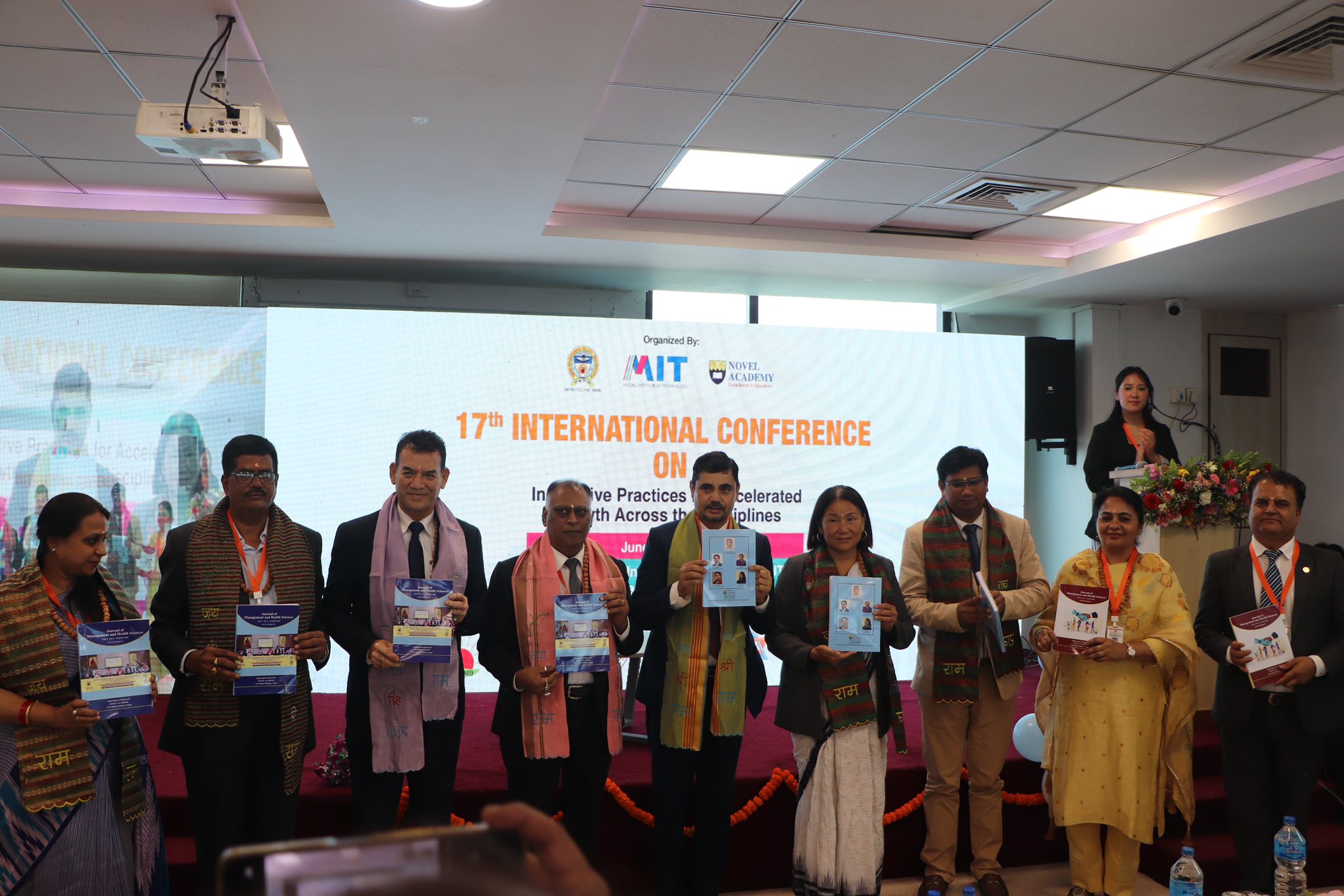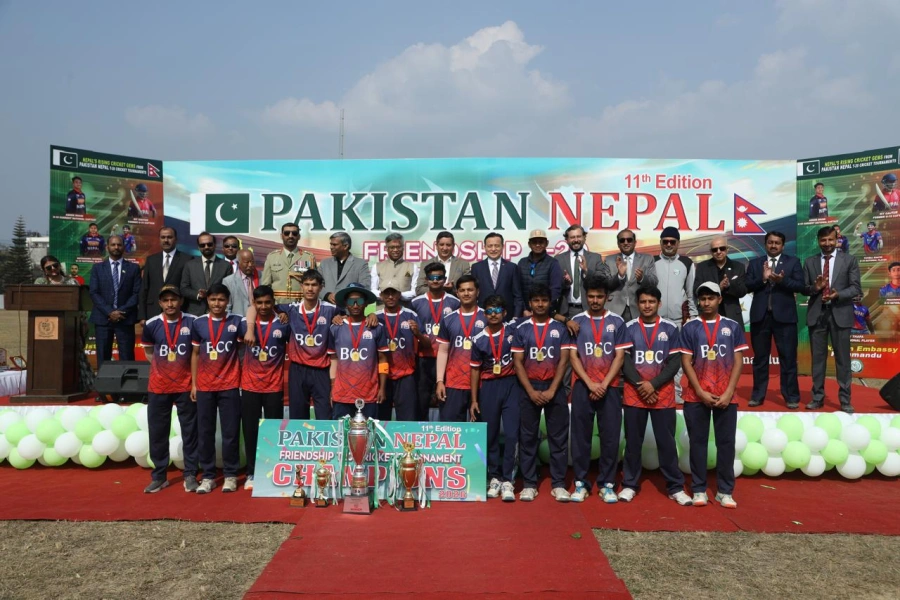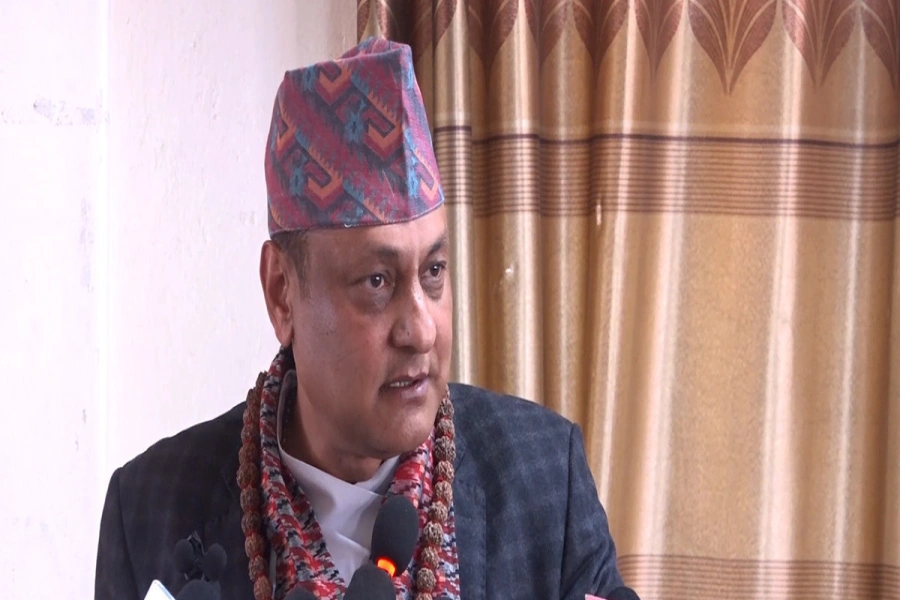KATHMANDU, June 14: The 17th International Conference on “Innovative Practices for Accelerated Growth Across Disciplines,” hosted by the Model Institute of Technology (MIT) in collaboration with Novel Academy (Nepal) and Swami Shukdevanand (PG) College (India), has set a new benchmark for cross-border academic cooperation and intellectual exchange.
The three-day event held recently in Kathmandu drew over 250 delegates from five countries, including early-career researchers, established academics, and policy leaders. With 42 paper presentations across four key thematic tracks—Commerce and Management, Science and Technology, Inclusive Growth, and Humanities—the conference underscored the potential of interdisciplinary approaches in driving regional development.
The conference was inaugurated by Deputy Speaker of the House of Representatives Indira Rana Magar, who called for “leveraging innovation to bridge the digital and developmental divide.” Chief Patron Swami Chinmayanand Saraswati, former Union Minister of India, emphasized the pivotal role of education as the "bedrock of civilizational progress."
MIT Kathmandu introduces globally accredited BBA and MBA progra...

In his keynote address, Prof. Dr. Biju Kumar Thapalia, Vice Chancellor of Purbanchal University, introduced a five-point roadmap for integrating technology in education. "AI literacy will soon be the next civil right," he declared.
Other notable speakers included Prof. Dr. Deepak Kumar Shakya, Vice Chancellor of Madhesh University, who emphasized the importance of collaborative research to achieve South Asia’s Sustainable Development Goals; Prof. Dr. Mahananda Chalise, Dean at Tribhuvan University, who called for the ethical integration of AI in management education; Prof. Dr. Kastoori Sriniwas from Osmania University, who underscored the global potential of India-Nepal partnerships in STEM; and Dr. Tshering Lama, Executive Chairman of Idea Studio, who described startups as the new diplomats of regional growth.
The conference received unprecedented scale and youth engagement, drawing over 250 participants from five countries. Notably, 60 percent of the presenters were students or early-career researchers, highlighting the event’s strong focus on nurturing young academic talent. The conference also featured high-level policy participation, with key remarks delivered by Mr. Chudamani Poudel, Secretary at Nepal’s Ministry of Education, Science and Technology (MOEST), reinforcing its significance at the national policy level.
A total of 35 research papers were presented in technical sessions. Forty-seven Indian scholars were felicitated by Prof. Dr. Deepak Shakya for their contributions to academia. The Best Paper and the Best Paper Presenter awards were jointly awarded to participants from both Nepal and India, celebrating scholarly excellence and cross-cultural engagement.
On the occasion, a total of 13 Memorandums of Understanding (MoUs) were signed between academic institutions from India and Nepal to enhance regional cooperation, according to the organizers. Notable partnerships included those between MIT and SSPG College, MIT and GDH College, as well as Novel Academy’s collaborations with Dr. C.V. Raman University, NDIM, SSPG College, and others. These agreements are set to facilitate joint research projects, student exchange programs, and faculty development initiatives, strengthening cross-border academic ties.
In his in the closing ceremony of the conference, Dr. Shailesh Singh (IAMD) stated that the conference had given birth to the Indo-Nepal Academic Corridor. Prof. Dr. Deepak Shakya reaffirmed the role of academic institutions in regional peace, innovation, and progress.










_20240903061556.jpg)























